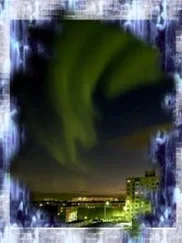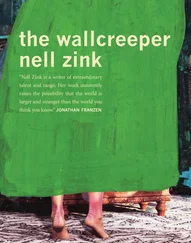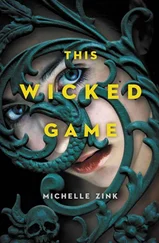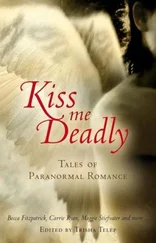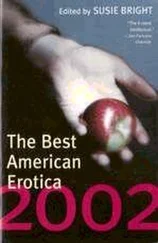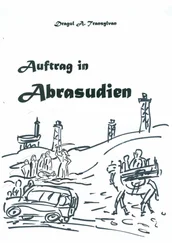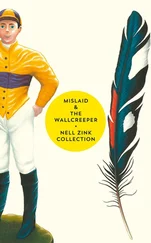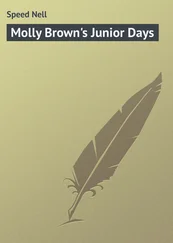High school graduation was a triumph. Temple gave an earnest valedictory speech on independence cribbed from Thoreau. Whenever he raised his voice, he reminded the white parents of black activists they’d seen on TV, and they shrank back in their seats. It wasn’t what he was saying, which involved hopes for a more just world if people would sit down and do the math like Thoreau, but his wearing a suit and not being a preacher, yet speaking in public.
Karen as salutatorian reminisced about the years their class had spent together in a scholarly way. The parents were used to hearing more comprehensible things at commencement speeches such as “We sold out of Brunswick stew and our class spirit was psyched,” but many were pleased to find their children had been exposed to learning. They regarded Karen as an honorary white person and applauded extra loud.
Hearing the term “Jefferson scholar” as he took the scroll and shook the principal’s hand, Temple was hard put not to jump up and down and squeak. He looked out and saw his mother gazing up with her hands pressed against her chest. His grandparents appeared transfigured by joy, blissful, liberated, expansive. His siblings were standing and whooping. His father’s place was empty, since he’d gone to the back of the gym to face the wall and dab at his eyes with a hankie. After Temple came the quarterback of the football team, with an athletic scholarship to George Mason, who got a lot more applause. But it was still the proudest moment of all their lives up until then. Dee was out of control all summer, high-fiving everyone. Trotskyite or not, Ike seemed to float around on invisible roller skates.
Given residency requirements that put them far apart — Temple was in a special dorm for Jefferson scholars — and their differing class schedules and busy orientation programs, Karen and Temple weren’t able to spend a lot of time together in their first few weeks at school. Karen had been warned by her mother not to spy on him and by Dee not to follow him around like a puppy, so she figured it might be a good thing.
He was busy anyway, disoriented and discombobulated, having typical adolescent experiences without knowing they were typical. Making long speeches to distracted eighteen-year-olds who were thoroughly occupied washing down fish sticks with Pepsi, feeling that they, despite their inattention, were understanding every word. Watching them stand up and wander off as though he did not exist. The invisible man. He was not used to seeing the faintest trace of comprehension dawn on the face of anyone other than his mother, Karen, Meg, the occasional teacher, and others predisposed to be nice to him — mostly Meg — so he had naturally assumed that anyone smart enough to understand him would find him fascinating. It was a shock to discover that suburban kids could follow his argumentation and find it hopelessly dull. “ Pale Fire is so overwritten,” they would say, yawning. He began to talk less, shortening his speeches to make them more efficient and effective.
It never crossed his mind to be tender, charming, or witty. Those were his ways of interacting with Dee and Karen. He didn’t know you could fake affection and manipulate people into loving you that way. Temple never pretended. He merely watched himself with eagle eyes. He saw that he was a nerd, possibly even a geek or a pedant if not a boor, definitely a name-dropper, and certainly not as well informed on certain topics as he would have liked to think.
Lectures, where he could be anonymous, were what he enjoyed most. At tutorials he felt he was wobbling over thin ice, keeping in motion to avoid plummeting into the sucking hole of his own ignorance, reliant on generous teaching assistants to bridge gaps in his knowledge, hyperaware that his problem was not stupidity but a basic approach that was all wrong in every way. Because he wanted to work hard, concentrate on things, dig in, move more slowly. But that was too slow. If you did all the reading, you wouldn’t have time to eat, sleep, go to class, or anything else. He needed to pick and choose, but he was not the type to question the potential relevance of material prescribed by professors. If they said read Thucydides, he read Thucydides. Maybe not every statesman had read him, but they ought to. He assumed no one would knowingly place obstacles in his way.
He threw himself into learning Russian with intense fervor, hanging around the Russian House at all hours. There he got into a game of Risk — a game at which he had thought he was the ruling expert master, since he always beat Karen and the neighbor kids — and got slaughtered by a pimply fat girl whose laugh was like the rhythmic call of a monkey. Heenh, heenh, heenh, alternating with a pseudo-Mayfair screech of “Boring, Sidney!” borrowed from a movie about the Sex Pistols. She seemed thick as a brick in every way, horribly repellent, yet successful. The next time he saw her, she took him apart at chess and informed him that they made first-semester Russian easy as falling off a log to attract more majors. They don’t spring the six noun cases on you until the spring. It was even easier than introductory ancient Greek. Then she recited a poem in Greek, and Temple, who had been proud of getting an eighty-eight on the first pop quiz in Russian class, began to feel that as a Jefferson scholar his goose was cooked. Or maybe not cooked, but getting warm on the bottom and in need of a change of location.
He kept moving. He took up drinking coffee. He did his reading in the library, staying there until late at night. He realized with a shock that he might have to withdraw from Physics 101. He had neglected to sign up for a lab because he didn’t know you were supposed to. Now he was weeks behind. They had entire particles that hadn’t been in the textbooks in Centerville. When he saw Karen, he would shake his head and smile wanly.
What he didn’t know: He was tall and broad-shouldered like a boy on an athletic scholarship. He wore white V-neck undershirts instead of dark crew-neck pocket tees. He didn’t wear glasses. No one could place him. Generally, faculty members were in favor of giving him a chance, or a tutor — it’s not like you could put a star scholar in a remedial course. What would you have been trying to remedy, anyway? His grammar and spelling, his diction and syntax, his study skills, it was all fine. It was his dated frame of reference that needed hoeing to let some sun through to the post-1960s vegetation. Temple needed someone to sit by him in lectures and say “Ignore this. Ignore this. Ignore this. This matters, because it’s new. Ignore this.” To him, everything was new and mattered.
Karen took a more pragmatic approach and was having more fun. She planned, tentatively, to major in English. As she explained to her mother in a letter, she knew English already, so she could probably get okay grades. There was no point majoring in something she didn’t know already, as she would just get into trouble or, more likely, major in the wrong thing. Whereas with English you can’t go wrong. Employers always need English. Besides, she had to take all sorts of electives to graduate anyway. She took cosmology, architecture, and economics, saving philosophy, chemistry, and military science (a special subject for ROTC members, but Karen had heard it was an easy A) for her second semester. They all sounded entertaining to her. Kicking back and listening to a lecture in a survey course was her idea of a good time. It was so much more interesting than high school or TV or anything else she’d done up to then. She loved college.
Reading statements like that made Meg get all choked up inside. After all, she had gone to Stillwater to meet women, and rather than a program of high-quality infotainment, it had turned out to be the low-budget, audience-participation version of college where professors leave content generation up to the students. She regretted that part of her life in its entirety, with the exception of its having produced Karen. Now she envied Karen so much it hurt. She wanted to be young again.
Читать дальше
Конец ознакомительного отрывка
Купить книгу

